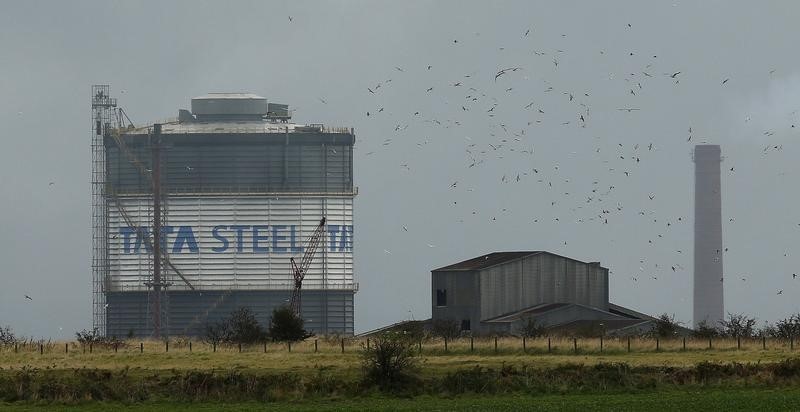By Eric Onstad
LONDON (Reuters) - Britain on Tuesday delayed tough emission standards for its struggling steel sector, but more is needed to avert a further job losses, industry officials told lawmakers.
This month over 4,000 UK steel jobs have been lost or are at risk due to a combination of amid weak prices and high costs.
The government said in a statement it would take advantage of special flexibilities to allow more time for steel plants to meet EU rules on emissions, which would have cost millions of pounds in additional costs in January.
The move was welcomed by industry representatives at a parliamentary hearing, but they said more action was needed, especially to deal with a flood of cheap imports from China.
Gareth Stace, director of industry lobbying group UK Steel, urged the government to tackle four other urgent issues, including high energy prices.
"It's all about delivering in the next few weeks, certainly not months. If it's months, then potentially we'd have further casualties in the sector," Stace told a parliament committee.
Tata Steel (NS:TISC), Britain's biggest steelmaker, said last week it may cut about 1,200 jobs as part of plans to restructure its struggling operations
The move was another blow to the sector after the liquidation of the Britain's second-largest steelmaker SSI UK was announced earlier this month.
Britain's steel sector says the biggest problem has been a sharp rise in steel imports from China, which has excess production as its economic growth rate slows.
Chinese steel imports to the European Union have shot up more than 500 percent over the past two years and have taken 40 percent of the market share, with most of that metal flowing to Britain, Luis Sanz, chief executive of Celsa Steel UK, told the committee.
"We have one of the most efficient furnaces in Europe, but we cannot compete with some of these imports," he said.

China makes nearly half the world's 1.6 billion tonnes of steel and is expected to export a record 100 million tonnes of steel to world markets this year.